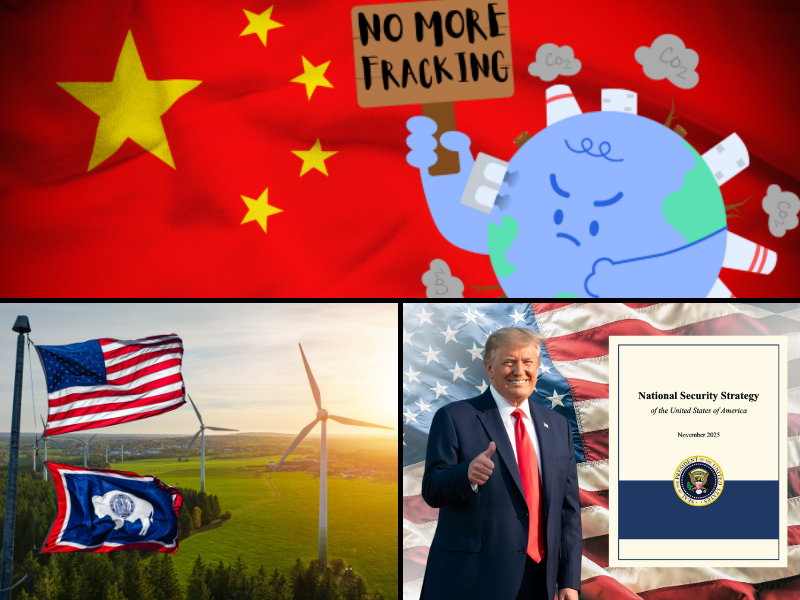The Paris climate agreement, adopted on December 12 by 195 nations attending the United Nations’ 21st Conference of the Parties (COP21), was called a “turning point for the world” by President Obama and “the best chance to save the one planet that we’ve got.”
The climate deal has not avoided criticism. Observers skeptical of catastrophic anthropogenic climate change and those who are among its most well-known proselytizers have condemned the agreement, likening it to the Kellogg-Briand Pact of 1928 that “outlawed” war and calling it “a fraud … a fake … there’s no action, just promises.”
The agreement commits, for lack of a better word, the signatory countries to limiting the rise of global temperatures to “well below” 2.0 ° Celsius (C) above pre-industrial levels while pursuing efforts to keep the temperature increase to just 1.5 ° C above pre-industrial levels. These countries also “pledged” to “reach global peaking of greenhouse gas emissions as soon as possible” and to “undertake rapid reductions thereafter in accordance with the best available science.”
One hundred eighty-four of the signatories also pledged to create and deliver plans every five years to progressively reduce their carbon dioxide emissions using the “highest possible ambition.” This is considered the backbone of the agreement, as weak plans will mean global temperature targets will never be met. The first U.S. plan pledges a reduction in emissions by 26-to-28 percent relative to 2005 levels by the year 2025.
The agreement also creates a $100 -billion annual Green Climate Fund (GCF), where developed countries in the West “shall provide financial resources to assist developing country Parties with respect to both mitigation and adaption.” Essentially, the fund compensates developing countries for the perceived damage they have suffered to date from climate change and helps ease their adaptation to future changes. James M. Taylor, vice president of external relations for The Heartland Institute and its senior fellow in environment and energy policy, who attended COP21, estimates the U.S.-share of the annual fund to be around $33 billion.
Critics note the agreement is essentially just an aspirational document. The agreement’s language was specifically crafted to avoid phrasing that could be considered legally binding. Even Secretary of State John Kerry, who called the agreement a “tremendous victory for all of our citizens,” has admitted “it doesn’t have mandatory targets for [temperature] reduction and it doesn’t have an enforcement, compliance mechanism.” By proponents’ own admission, the first emissions-reduction plans don’t even come close to reducing the volume of greenhouse gas emissions necessary to limit warming to 2.0 ° C and there are no penalties or sanctions for creating sub-standard plans. There are also no penalties for countries that miss making payments to GCF.
“Unless and until the individual countries actually enact the [emissions] targets through domestic law,” writes H. Sterling Burnett, a research fellow for The Heartland Institute and managing editor of Environment & Climate News, “they aren’t even binding within the legal system of any individual country.” The United States is no exception.
Instead of signing onto climate agreements that promote even more taxes, regulations, and subsidies aimed at reducing carbon dioxide emissions, elected officials should support sound environmental stewardship that is pro-energy, pro-environment, and pro-jobs. Doing so would produce enormous economic dividends that would genuinely improve people’s lives.
The following documents provide more information on The Heartland Institute’s efforts in Paris, the Paris agreement itself, and climate change in general.
The Heartland Institute in Paris for COP-21
https://heartland.org/Cop21
The Heartland Institute led a delegation of scientists and policy experts to Paris to hold a “counter-conference” during COP-21 called the “Day of Examining the Data” on Monday, December 7, 2015 to demonstrate there is strong and informed opposition to the plans of climate alarmists, and to expose the agendas and true costs of the agreement negotiated in Paris. The overarching message: Humans are not causing a climate crisis, and the United Nations’ “solutions” to this non-existent problem will do much harm and almost no good. This website provides an in-depth look at Heartland’s efforts in Paris.
Adoption of the Paris Agreement, Proposal by the President (United Nations, COP-21)
https://heartland.org/policy-documents/adoption-paris-agreement-proposal-president-united-nations-cop-21
The final Paris Agreement, reached at COP-21 of the United Nations on December 12, 2015, in Paris, France.
Why Scientists Disagree About Global Warming (rev. 12/04/2015)
https://heartland.org/policy-documents/why-scientists-disagree-about-global-warming
The most important fact about climate science, often overlooked, is that scientists disagree about the environmental impacts of the combustion of fossil fuels on the global climate. There is no survey or study showing “consensus” on the most important scientific issues, despite frequent claims by advocates to the contrary. Scientists disagree about the causes and consequences of climate for several reasons. Probably the only “consensus” among climate scientists is that human activities can have an effect on local climate and that the sum of such local effects could hypothetically rise to the level of an observable global signal. The key questions to be answered, however, are whether the human global signal is large enough to be measured and if it is, does it represent, or is it likely to become, a dangerous change outside the range of natural variability? On these questions, an energetic scientific debate is taking place on the pages of peer-reviewed science journals.
Climate Change Reconsidered II: Physical Science
https://heartland.org/policy-documents/climate-change-reconsidered-ii-physical-science
Climate Change Reconsidered II: Physical Science is an independent, comprehensive, and authoritative report on the current state of climate science published in October 2013. It is the fourth in a series of scholarly reports produced by the Nongovernmental International Panel on Climate Change (NIPCC), an international network of climate scientists sponsored by three nonprofit organizations: the Center for the Study of Carbon Dioxide and Global Change, the Science and Environmental Policy Project (SEPP), and The Heartland Institute.
Climate Change Reconsidered II: Biological Impacts
https://heartland.org/policy-documents/climate-change-reconsidered-ii-biological-impacts
The second volume of three in the second wave of the Climate Change Reconsidered series, Climate Change Reconsidered II: Biological Impacts, was released on April 9, 2014. Climate Change Reconsidered II: Biological Impacts constitutes an independent, comprehensive, and authoritative report on the impacts of climate change on plants, terrestrial animals, aquatic life, and human well-being.
Top 10 Global Warming Lies
https://heartland.org/policy-documents/top-10-global-warming-lies
It’s not unusual for the environmental Left to make false assertions to attract media attention and raise money. But a mailer from the Environmental Defense Fund “may have set a new low,” writes Heartland Institute Senior Fellow James M. Taylor in this 12-page response to EDF. “The only good thing about EDF’s preposterous mailer is that it can be used to show open-minded people the difference between global warming alarmists and global warming truth-tellers,” he writes. Taylor’s response addresses 10 false claims made by EDF, from the alleged impact of global warming on bat populations, infectious diseases, and national security to the mailer’s dire warnings about rising sea levels and shrinking glaciers.
Ten Principles of Energy Policy
http://heartland.org/policy-documents/ten-principles-energy-policy
Heartland Institute President Joseph Bast outlines the ten most important principles for policymakers confronting energy issues, providing guidance to deal with ongoing changes in markets, technology, and policies adopted in other states, supported by a thorough bibliography.
Impact of Current Climate Proposals
https://heartland.org/policy-documents/impact-current-climate-proposals
This article by Bjorn Lomborg investigates the temperature reduction impact of major climate policy proposals implemented by 2030, using the standard MAGICC climate model. Even optimistically assuming promised emission cuts are maintained throughout the century, the impacts are generally small. The impact of the U.S. Clean Power Plan (USCPP) is a reduction in temperature rise by 0.013°C by 2100. The full U.S. promise for the COP21 climate conference in Paris, its so-called Intended Nationally Determined Contribution (INDC), will reduce temperature rise by 0.031°C. The EU 20-20 policy has an impact of 0.026°C, the EU INDC 0.053°C, and China’s INDC 0.048°C. All climate policies by the United States, China, European Union, and the rest of the world, implemented from the early 2000s to 2030 and sustained through the century, will likely reduce global temperature rise about 0.17°C in 2100. Lomborg reports these impact estimates are robust to different calibrations of climate sensitivity, carbon cycling, and different climate scenarios. Current climate policy promises will do little to stabilize the climate and their impact will be undetectable for many decades.
Nothing in this Research & Commentary is intended to influence the passage of legislation, and it does not necessarily represent the views of The Heartland Institute. For further information on this and other topics, visit the Environment & Climate News website at http://news.heartland.org/energy-and-environment, The Heartland Institute’s website at http://heartland.org, and PolicyBot, Heartland’s free online research database, at www.policybot.org.
The Heartland Institute can send an expert to your state to testify or brief your caucus; host an event in your state; or send you further information on a topic. Please don’t hesitate to contact us if we can be of assistance! If you have any questions or comments, contact John Nothdurft, Heartland’s director of government relations, at [email protected] or 312/377-4000.



